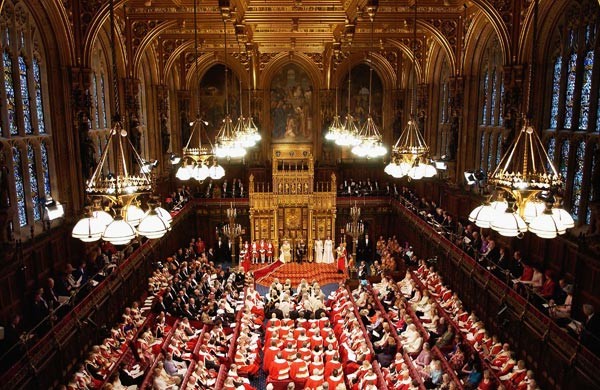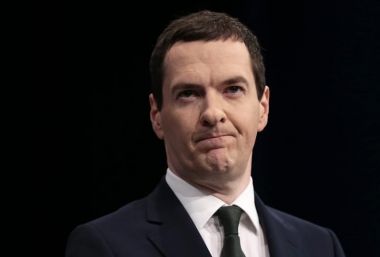The false God of democracy: why we need an unelected House of Lords

The tax credits debate rages on as today's papers report on a briefing note signed by a host of faith leaders circulated to members of the House of Lords.
The alliance of religious organisations has accused the government's plans to limit tax credits to the first two children as "fundamentally anti-family." The cap could break up families, discourage stable households and drive up abortion rates, the briefing says. Peers receiving the briefing ahead of next week's debate on the government's welfare bill were told that "anything which sends the implicit message that a child is unwanted, unvalued or superfluous should be strongly resisted." The policy goes against the belief that children should be a "blessing not a burden."
The faith groups' briefing will cause further irritation to the Treasury who seem determined to push through the tax credit reforms, despite their defeat in late October.
When a government grudgingly admits it is "in listening mode," which this one has done repeatedly, it is usually code for an approaching change of mind. The message coming from ministers is that all will be revealed in the autumn statement on 25 November but this has been accompanied with vague threats as to the future of the House of Lords.

Immediately after the government's defeat in the Lords, Osborne said that "unelected Labour and Liberal Lords have defeated a financial matter passed by the elected House of Commons.
"David Cameron and I are clear this raises constitutional issues which need to be dealt with."
Far from raising "constitutional issues," the House of Lords have demonstrated exactly why this country needs an unelected second chamber.
Let us be clear (to borrow one of Osborne's favourite phrases) it is obvious to the public that if tax credits must be reformed it would sensible to do so gradually, as the National Living Wage is introduced. Although it is likely this would still hurt low income families, the pain would be much more managable than under Osborne's current plans to suddenly cut in-work benefits in one fell swoop next year.
But Osborne is not a member of the public. As he likes to remind us, he is an elected politician. In our idolatry of democracy we have forgotten that this is not always a good thing. Actually it brings significant weaknesses.
First, elected politicians are inherently short-termist. They can only think ahead as far as the next election when, once again, they must effectively re-interview for their jobs. This means they only really operate in less than five-year time periods.
Second, they are inevitably populist and must constantly bear in mind their public image. Their popularity and their existence go hand-in-hand and if the fickle public decide to change its mind, it is likely the politician will be fired by the electorate.
So when it comes to unpopular reforms, politicians will tend to try and rush them through as quickly as possible so they have evaporated from the public consciousness by the time the next election comes around. Although this is not in the public's best interest, it is an inevitable part of a democratic system. More popular measures will be packed in when the election looms.
This is exactly what is happening with tax credits. If Osborne introduced the measures gradually over the next five years, he would appease the Lords and lessen the painful impact on the lowest paid. But he fears that if cuts are still being made as the 2020 election looms, he is less likely to be re-instated. If he cuts hard and fast now he will leave room for more appeasing measures in 2019-20.
All this is not necessarily a criticism of elected politicians. It is realistic assessment of what they must consider.
It does however bring into sharp relief the inherent weaknesses in any democracy. While it does not mean we should abandon the best system of government humanity has invented, it does mean that we should recognise its flaws and insist on an unelected second chamber.
The House of Lords has plenty of faults but it is immune from the weaknesses of the House of Commons. Peers do not think in five year cycles. They are not concerned about the next election and the possibility of losing their jobs. They are exempt from the pressures of popularity and so are more able to make difficult, unpopular decisions in the public's best interest.
So when Osborne warns about "constitutional issues" he should be very cautious about introducing talk of an elected second chamber. As archaic as the Lords may seem, it provides a vital role in our democratic system. It is not without problems but removing it or creating another elected body would be bowing to the false god of democracy without spotting the feet of clay.











